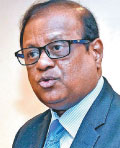Student lives in danger due to Interim Orders : Minister of Education Dr. Susil Premajayantha
In response to a request by the Leader of the House, Minister Dr. Susil Premjayantha to amend the Code of Civil Procedure regarding interim orders, Justice Minister Dr. Rajapakshe said they are ready to discuss and make a decision if there is a necessity for a policy governing the issuance of interim orders by the Courts.
 Education Minister Susil Premajayantha highlighted that when competitive examinations are conducted for teacher recruitment, a subset of individuals resort to legal actions, underscoring that the primary focus should be on teachers’ dedication to serving children’s education. Minister Premajayanth emphasised that interim injunction orders extending for approximately three years have led to adverse consequences.
Education Minister Susil Premajayantha highlighted that when competitive examinations are conducted for teacher recruitment, a subset of individuals resort to legal actions, underscoring that the primary focus should be on teachers’ dedication to serving children’s education. Minister Premajayanth emphasised that interim injunction orders extending for approximately three years have led to adverse consequences.
He further said that an injunction order should not persist for such an extended duration, as this extended timeframe is causing difficulties for the children.
To rectify the issue, it is proposed that the Code of Civil Procedure should undergo an amendment to establish definite timelines for interim injunctions. The lack of attention towards the injustice faced by children is concerning. The legislative domain of Parliament is where laws are enacted, and subsequently, courts are tasked with enforcing these laws. In light of this, the Minister of Education has requested the Minister of Justice to introduce the necessary amendments to the Parliament for consideration.
The Minister said: “Due to the six-month Interim Order, educational institutions have encountered challenges in recruiting principals and teachers. This situation has resulted in a disadvantage for the students, and unfortunately, there seems to be a lack of attention directed towards the injustice inflicted upon them. It is essential to establish a specific time frame for interim injunctions, which would necessitate an amendment to the Code of Civil Procedure. This measure could help address such issues more effectively.
It would be highly beneficial if the Minister of Justice takes steps to amend the Code of Civil Procedure, specifying the duration of validity for interim injunctions. An earnest appeal is extended to the Minister of Justice to undertake this task. The rationale behind this urgency lies in the fact that certain individuals attempt to prolong interim orders into seemingly permanent arrangements.
It is disheartening that some petitioners who initiate legal actions fail to grasp the gravity of infringing upon children’s fundamental right to education. It is important to recognise that these lawsuits concerning the hiring of teachers and principals are distinct from land-related cases. The implications for children’s education are profound and should be considered with the utmost seriousness.
Out of the 32,000 teacher vacancies, approximately 22,000 were filled by assigning individuals to schools during the recruitment of development officers three years ago, without following formal procedures. These individuals have subsequently filed a legal case to impede their official recruitment into the teaching service. It is notable that certain parties are seeking to extend the temporary six-month interim order into a permanent arrangement.
The authority to employ graduates for the purpose of replacing retired teachers is expected to be delegated to the Provincial Councils. This transfer of authority aligns with the provisions outlined in the Teachers Service constitution, and the necessary approval from the Cabinet is being sought. A gazette has been issued to recruit 700 graduates specialising in Science, Technology, and English for positions in the Central Province. Despite challenges, efforts are being actively pursued to ensure that formal teaching positions are made available to children.
To illustrate, appointing an individual with a degree in archaeology to a primary school’s teaching role can adversely impact the structured education environment. This situation compounds the challenges brought about by the repercussions of the Covid-19 pandemic, particularly in primary education. The informal placement of such teachers adds to the predicament. In this context, the circular issued by the Central Provincial Director of Education, which temporarily halts annual salary increments for principals unable to achieve an average result of 90 percent, should be promptly suspended.
The formulation of education policies falls under the jurisdiction of the Ministry of Education, and Provincial Education Directors are responsible for handling administrative matters within their respective provinces, not for making policy decisions. As the Minister overseeing education, I engage in monthly discussions with provincial education directors via Zoom meetings. It is imperative that circulars are not issued without seeking input from the Ministry of Education on matters of this nature.
Ready to take a decision on a policy on Interim Orders: Minister of Justice, Constitutional Reforms, and Prison Affairs, Dr. Wijeyadasa Rajapakshe
 “We are willing to engage in discussions and make a decision if there is a requirement for a policy governing the issuance of interim orders by the Courts. We will pay serious attention to this issue to do justice for the students.”
“We are willing to engage in discussions and make a decision if there is a requirement for a policy governing the issuance of interim orders by the Courts. We will pay serious attention to this issue to do justice for the students.”
It is a crime to waste children’s time by filing lawsuits: Samagi Jana Balawegaya (SJB) MP Rohini Kaviratna:
“It is a lamentable circumstance that despite the issuance of a Cabinet Paper for the recruitment of teachers to Provincial Councils, the implementation has faced challenges. Regrettably, students who have been away from their homes for two years are struggling with their reading and writing abilities. A pressing question arises: Should the salaries of ministry secretaries, governors, and other officials not be reduced prior to any reductions in the salaries of principals and teachers?
 When schools experience teacher vacancies, it becomes difficult to anticipate high academic achievements in both general and advanced levels among students. It is important to note that it is not permissible for the Director of Education of the Central Province to circulate a notice indicating that a Principal’s salary will not be increased if the results of the General Examination are subpar. The Minister of Education should promptly take measures to suspend this directive.
When schools experience teacher vacancies, it becomes difficult to anticipate high academic achievements in both general and advanced levels among students. It is important to note that it is not permissible for the Director of Education of the Central Province to circulate a notice indicating that a Principal’s salary will not be increased if the results of the General Examination are subpar. The Minister of Education should promptly take measures to suspend this directive.
The Central Province is currently facing a substantial deficit of 5,878 teachers. Regarding salary increments, civil servants are typically subject to Circular 7-98, which pertains to the Performance Evaluation of Public Service Officers as outlined by the Ministry of Public Administration. This evaluation process adheres to Chapter 7 of the Establishments Code. It is important to acknowledge that enhancing students’ academic outcomes is merely one of the multifaceted responsibilities held by principals and teachers.
Furthermore, there are approximately 45 additional responsibilities that teachers and principals are tasked with. If teachers, principals, the ministry secretary, and the minister collectively establish clear educational goals, they can pave the way for a fruitful journey in the realm of education.”
